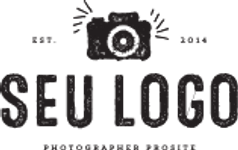The growing emphasis on generic drug approvals, regulatory compliance, and cost-effective alternatives in pharmaceuticals is propelling significant growth in the Bioequivalence Studies Market Share. These studies, essential for demonstrating therapeutic equivalence between brand-name and generic drugs, are critical in reducing healthcare costs and improving accessibility to vital medications.
As the pharmaceutical industry undergoes rapid transformation with rising demand for generics and biosimilars, bioequivalence (BE) studies are becoming an indispensable part of drug development. Regulatory agencies such as the U.S. FDA, EMA, and others have increasingly tightened their requirements around bioequivalence, especially for generic drugs seeking market entry. This regulatory shift, combined with rising healthcare costs and patent expirations of blockbuster drugs, has created a fertile ground for growth in the BE studies market.
Key Market Drivers
- Patent Expirations Fuel Generic Development:
- Numerous high-value pharmaceuticals are reaching the end of their patent life, prompting a surge in the development of generics. To gain regulatory approval, these generics must undergo rigorous bioequivalence testing to ensure therapeutic parity, thereby accelerating market demand.
- Cost-Effective Drug Alternatives:
- The increasing burden of healthcare costs globally has shifted focus toward affordable treatment options. Generics are significantly cheaper than branded drugs, and the bioequivalence studies required to approve these generics help ensure their safety and efficacy at lower price points.
- Global Regulatory Support and Harmonization:
- Countries across North America, Europe, and Asia-Pacific are harmonizing their regulatory frameworks, making it easier for companies to navigate BE studies across markets. This consistency promotes international collaboration and fuels cross-border investment in bioequivalence testing services.
- Technological Advancements in Study Design:
- Innovative analytical methods and real-time data collection tools are enhancing the accuracy and efficiency of BE studies. Technologies such as pharmacokinetic modeling, electronic data capture systems, and AI-based analytics are streamlining the study process and reducing time-to-market for generics.
Market Segmentation and Regional Insights
The market is segmented by study type, therapeutic application, end-user, and region. Among study types, pharmacokinetic studies dominate the segment due to their fundamental role in demonstrating bioequivalence. In terms of therapeutic application, cardiovascular drugs, anti-diabetics, and CNS agents show substantial activity due to their frequent transition into the generic drug pipeline.
Regionally, North America held the largest share of the market in 2023, thanks to a well-established regulatory environment and high generic drug adoption. Asia-Pacific, however, is projected to experience the fastest growth rate during the forecast period due to an expanding pharmaceutical base, government initiatives supporting generics, and increasing outsourcing to contract research organizations (CROs) in countries like India and China.
Competitive Landscape
Leading players in the bioequivalence studies market include Labcorp, Charles River Laboratories, Syneos Health, IQVIA, Eurofins Scientific, and PPD Inc. These organizations are focusing on partnerships, acquisitions, and advanced service offerings to enhance their market footprint.
For instance, several CROs are investing in bioanalytical labs and digital infrastructure to provide end-to-end BE study services, from protocol design to regulatory submission. As competition intensifies, strategic collaborations with pharmaceutical manufacturers are becoming increasingly common to optimize resource allocation and study outcomes.
Future Outlook
The next decade will see bioequivalence studies becoming even more integral to global drug development strategies. The rising complexity of drugs, including modified-release formulations and biosimilars, will necessitate even more rigorous and customized BE studies. Moreover, increasing healthcare access in emerging economies will amplify the demand for affordable generics, further boosting the need for bioequivalence services.
Governments and healthcare authorities are also expected to increase funding and introduce supportive policies to streamline generic approvals. In tandem, digital transformation and real-world evidence will reshape how BE studies are conducted, bringing faster, safer, and more effective generics to market.
About Us:
SNS Insider is one of the leading market research and consulting agencies that dominates the market research industry globally. Our company's aim is to give clients the knowledge they require in order to function in changing circumstances. In order to give you current, accurate market data, consumer insights, and opinions so that you can make decisions with confidence, we employ a variety of techniques, including surveys, video talks, and focus groups around the world.
Contact Us:
Akash Anand – Head of Business Development & Strategy
📧 info@snsinsider.com
📞 +1-415-230-0044 (US) | +91-7798602273 (IND)
Other Trending Reports
Peripheral Neuropathy Market Trends
PET-CT Scanner Device Market Trends
